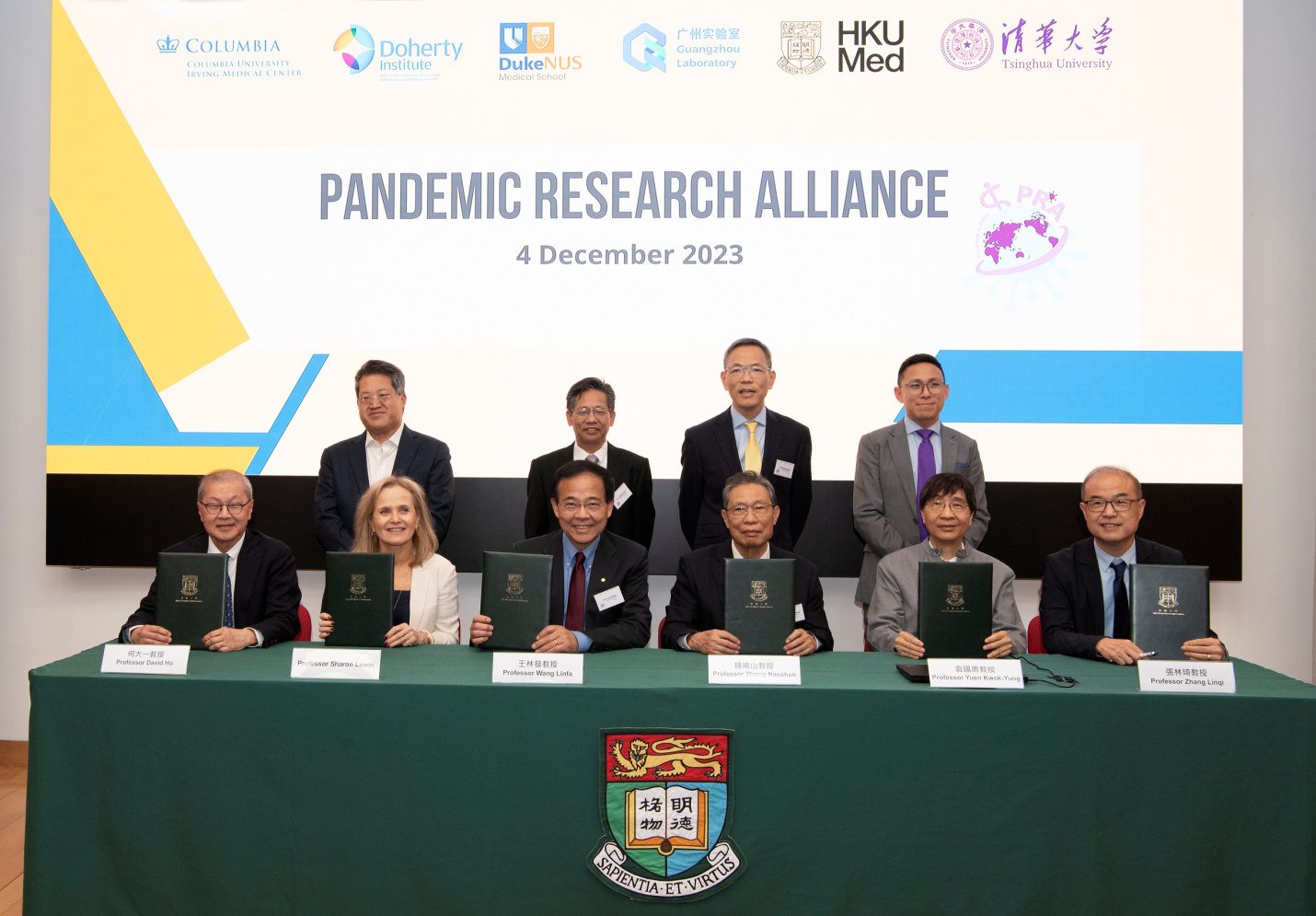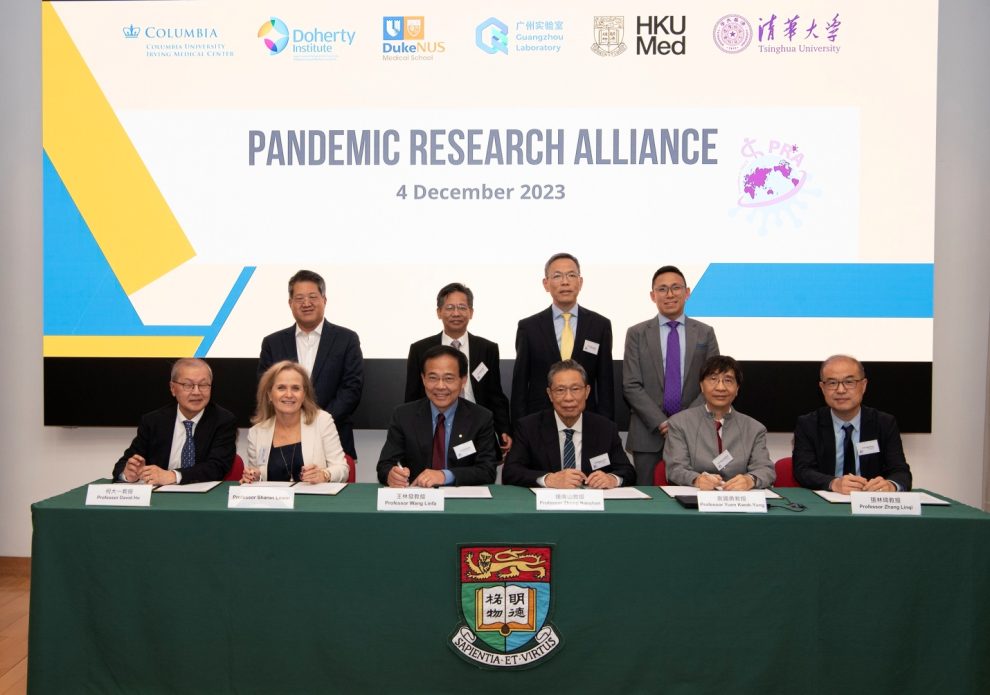World-renowned professors from six leading institutions in four countries launched the Pandemic Research Alliance (PRA) today (4 December) to drive concerted research into respiratory viruses from animals to humans, improved surveillance, and new solutions to better manage the next pandemic.
This is the first alliance of its kind bringing together scientists from Australia, Mainland China, Hong Kong, Singapore and the United States. The alliance, which is anchored by Professor Yuen Kwok[1]Yung, a microbiologist from the University of Hong Kong (HKU) and Chairperson-designate of the alliance, and acclaimed Columbia University AIDS pioneer Professor David Ho, aims to leverage the specific expertise of each institution to produce joint output. The founding members institutions and representatives of PRA also include Doherty Institute – University of Melbourne, Australia, represented by Professor Sharon Lewin; Duke-National University of Singapore (NUS) Medical School, Singapore, by Professor Wang Linfa; Guangzhou National Laboratory, PRC, by Professor Zhong Nanshan; and Tsinghua University, PRC, by Professor Zhang Linqi. Professor Chen Zhiwei from HKU will serve as PRA Secretary-designate.
‘The PRA will involve research sharing and collaboration to bring together some of the leading minds internationally in virology and related disciplines to jointly seek solutions to pressing issues before the next pandemic hits,’ said Professor Yuen.
‘We look forward to sharing our joint output with the global community and to welcoming more experts from the Pacific Rim and potentially other regions, over time,’ he said.
The new alliance will focus on assessing the potential for animal viruses to jump to humans using artificially grown organoids, as well as faster tests to detect the first human case infected by a novel virus with pandemic potential, and to design drug treatment and vaccines pre-emptively before such outbreaks.
Members will share information on emerging infectious agents for early outbreak alerts, as well as research materials and reagents to provide a rapid research response. Aims for the next pandemic include ensuring early alerts, responses and control through rapid molecular testing, minimising mortality with a broad spectrum of antiviral or neutralising antibodies and developing a universal vaccine platform to manufacture a specific vaccine in the shortest possible time frame. Through this research output, the alliance hopes that normal life could be maintained if there is another pandemic, with no city lockdowns or school closures.
‘Given the history of pandemics, we expect more emerging infectious disease outbreaks, one of which may cause the next pandemic within another decade or so. By launching this alliance today, we are effectively gearing up to protect lives and avert future disruptions to our way of life,’ said Professor Ho.
Having collaborated closely over the years, including when Hong Kong experienced an outbreak of severe acute respiratory syndrome (SARS) in 2003, Professor Ho and Professor Yuen spearheaded the idea to forge an alliance whose founding members are based in the Pacific Rim, where many infectious respiratory viruses have originated.

The founding members joined a signing ceremony at HKU, presided over by University President Professor Xiang Zhang, and HKU Dean of Medicine Professor Chak-sing Lau, who expressed their confidence in the alliance’s potential and commended its proactive approach to promoting worldwide readiness for pandemics. The members then chaired the PRA’s inaugural scientific symposium on pandemic virus research, convening experts from across the Pacific Rim and Asia.
The alliance plans to publish joint research and maximise the impact of its findings to help enhance pandemic preparedness around the globe.
One of the first global scientists to discover HIV and to shed light on the dynamics of AIDs in infected individuals, Columbia University Professor Ho founded the AIDS Institute at HKU. During the COVID[1]19 pandemic, HKU and Columbia research groups published eight collaborative articles on SARS-CoV-2 in leading scientific journals. The PRA will build upon this foundation of global collaboration.












